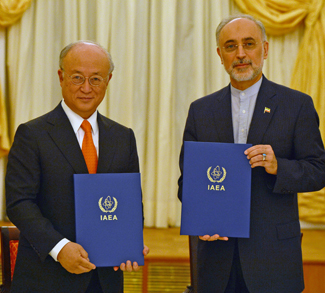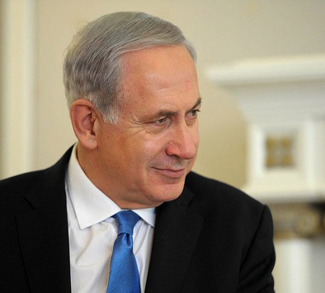Syria’s disintegration into civil war since 2011 has created a strategic dilemma for Israel that the upcoming US-Iran deal will throw into stark relief. On the one hand Israeli security has benefited from the conflict in two concrete ways. Firstly its enemy the Syrian Baath party-state has partially collapsed, losing territory, allies like Gaza’s Hamas, and military resources. Secondly its northern border is quieter as Lebanon’s Hezbollah and its Iranian backers have been forced to divert men and money into propping up the Damascus regime. Shia-influenced Arab regimes in Beruit, Damascus, and Baghdad may one day form a hostile front against Tel Aviv but today each has Sunni militia groups that pose them more immediate problems.
On the other hand Sunni fundamentalist terrorist organizations like Jabhat al-Nusra, Ahrah al-Sham (which recently claimed Syria’s Idlib province), and Islamic State (IS) are equally antithetical to any Arab-Israeli peace. Israel may not love the Arab regimes that surround it but it has learned to live with them. A tangle of Sunni jihadi principalities competing for recruits, money, and territory would make for violent, unstable neighbors, even if they spent most of their efforts fighting each other. Hezbollah has shown Israel that a hybrid party-militia with a religious group identity can be a more nimble security threat than a sclerotic dictatorship.
Syria’s conventional military threat to Israel, never large, has diminished drastically; its unconventional threats such as terrorist proxies or chemical weapons programs have been dismantled or unleashed against internal enemies. The Baath have been characteristically ruthless in their treatment of their domestic enemies but are reeling from a Turkish-Saudi backed rebel coalition in the north and a simultaneous IS thrust from the east. The fall of Palmyra shows the regime is suffering a manpower shortage and Damascus and its foreign allies have resorted to recruiting Afghan mercenaries and arming Palestinian factions in the Yarmouk refugee camp among other measures. Many Iraqi Shia militiamen have returned home to fight IS, aggravating Syrian government overstretch.
Israel may be correct when it calculates helping in the Assad’s regime end will check Iranian influence in the Arab world.
Preoccupied with Gaza Israel has largely kept out of Syria. Now however reports have surfaced of wounded al-Nusra gunmen receiving treatment in Israeli hospitals, making it likely that the present Israeli government sees the odious Damascus regime as still the major threat to Tel Aviv. In material terms this may seem so, but the Afghan precedent is not encouraging. In the 1980s the West and Arab monarchies collaborated to bring down the Soviet-backed communist regime and got al-Qaeda and the Taliban as eventual successors.
Israel may be correct when it calculates helping in the Assad’s regime end will check Iranian influence in the Arab world. It may also be that the range of forces now weighted against the government of Syria are such that it is already fatally compromised even without Israel’s minor interventions in the rebels’ favor; Syrian and international jihadi groups could become a regional force regardless of what Tel Aviv does. Nonetheless by helping Jabhat al-Nusra now Israelis may find they have more ideologically-motivated and less deterrable neighbors facing them in the future.
Regardless of whether a weakened Assad prevails or not, whichever side wins the Syrian civil war wiIl be anti-Israeli. Assad would need Iranian money to rebuild his country and Tehran remains staunchly hostile to Tel Aviv regardless of recent elections and movements on the nuclear issue. The issue of the Golan Heights would doubtless also prove a useful diversion for the more corrupt militias the regime has created and justify the patriotic need for their continued existence. Meanwhile the jihadi movement is openly anti-Semitic and theocratic in its worldview. The re-conquest of formerly Muslim Palestine would be a rhetorical device all its factions could employ to mobilize supporters.
For Israel, the best outcome would be mutual exhaustion and a negotiated settlement to a government of national reconciliation which kept Syria’s state apparatus intact but without Assad and his family at the top. A UN-backed treaty similar to the Taif Agreement that ended Lebanon’s civil war would empower the country’s Sunni majority while allowing the state to reassert its authority in territory currently abandoned to IS and the Syrian Kurdish militias. Such a government would be divided between Syria’s many communities and preoccupied with its own internal security, not the Arab-Israeli conflict.
The opinions, beliefs, and viewpoints expressed by the authors are theirs alone and don’t reflect any official position of Geopoliticalmonitor.com.




